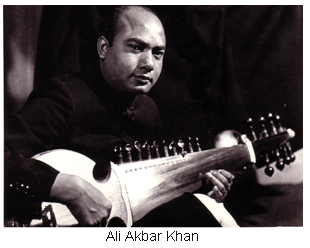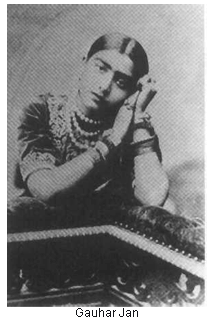- Guest Editor’s Column
- Hard Talk
- All Roads Lead to Delhi's New Art Street
- Art Nouveau : New Art Furniture
- Book Review
- Visualising Sastriya Music :
- Jamini Roy's Conviction & Marketing Strategy
- In the News
- The month that was
- Art's eye-view
- Art Bengaluru
- Photographing Rickshaws through Theatrical Eyes
- The Newspaper, the Text & the Critique
- Artist Index and Statistics
- Market Insight
- Auction Reports : What happened
- Auction Reports : what's forthcoming
- Dakshin Paschim
- Progress of Non-Abstract Geometry
- Indian Life and Landscape by Western Artists
- Recent Works by Prabhavathi Meppayil
- April Salon
- In Transition: New Art from India
- Modern Folk
- Nothing Lost in Transition
- Different hues of Aakriti
- Sotheby’s : Important Watches
ART news & views
Visualising Sastriya Music :
Volume: 2 Issue No: 4 Month: 5 Year: 2010
A Maker’s Statement
When I used to be taken to the cinema as a young child, I was fascinated by many kinds of documentary films that used to be shown before the main film began. Several of these documentaries were about the lives of musicians, and felt a special attraction towards them. After some years, the screening of these documentaries dried up and stopped, perhaps because they were no longer being made. It may be that somewhere I harboured ever since the desire of watching more of such films, but I never thought that I would make them myself. When the chance - or responsibility - of making such works came,  I had already crossed the half-way mark of my life.
I had already crossed the half-way mark of my life.
I am really a classical instrumentalist. For 41 years I have been a disciple of the recently departed maestro, Ustad Ali Akbar Khansahab, as well as many others of his family. Further, as I had a strong inclination for history from childhood, I found myself attracted towards the lives of great musicians. As a result, I collected books, pictures and paper cuttings about artists. Later, I started collecting recordings of these artists and built up a large collection. But even then I had no idea that they would one day be put to this kind of use.
From 2007, I was regularly invited to take part in a summer school organized by the Asian Music Circuit of London. Even apart from teaching music, I made Power-Point presentations about musical subjects. In 2008, the head of this organization, Shri Viram Jasani asked me to prepare a documentary film on the subject of professional women performers - the Baijis. I should mention that as early in 1996 I had collaborated as music director in the making of a documentary on a similar subject by teacher of Political Science named Sanghamitra Sarkar. The film was called Anwesha - the Quest. The film was made after nearly two years' hard research. Even apart from composing the music. I contributed in other ways too - I had already collected a lot of material which came in very handy. This film examined how Wajid Ali Shah's arrival in Kolkata contributed both to the growth of music and dance and a colourful lifestyle. It was from this time that I had a growing desire to make a film on the Baijis myself. When the chance came, I made short film of 23 minutes entitled Tawai'f. This film presented the musical history of the Baijis from the time we first hear of them. The film was shown at various places in England, and of late it has also been screened a few times in Kolkata.
By this time I found that two good friends of mine, Sanjay and Subrata Bhattacharya, had created a documentary on the legendary singer Pt Bhimsen Joshi. This was screened at Gorky Sadan in Kolkata. I felt then a deep desire to make a film on my guru Ustad Ali Akbar Khansahab. But my master was allergic to all kinds of publicity, and the film never got off the ground. Little did I then think that the chance would actually come in this tragic way! On the 19th of June, 2009, Khansahab passed away. At a memorial meeting held at Nandan two of his students - my gurubhai Tejendranarayan Majumdar and I - were asked to make a documentary on our guru. Our resources were limited, but we worked tirelessly, and in seven days we prepared an authoritative 52 minute film which, to our good fortune, received good reviews and praise from informed quarters. Around this time, I had also created for the Asian Music Circuit a 34 minute documentary on the Khayal. This film traced the origin and development of the form of the khayal. Emphasis was laid on the practical aspect of khayal singing, and I was able to incorporate interviews with leading practitioners of the form.
I felt then a deep desire to make a film on my guru Ustad Ali Akbar Khansahab. But my master was allergic to all kinds of publicity, and the film never got off the ground. Little did I then think that the chance would actually come in this tragic way! On the 19th of June, 2009, Khansahab passed away. At a memorial meeting held at Nandan two of his students - my gurubhai Tejendranarayan Majumdar and I - were asked to make a documentary on our guru. Our resources were limited, but we worked tirelessly, and in seven days we prepared an authoritative 52 minute film which, to our good fortune, received good reviews and praise from informed quarters. Around this time, I had also created for the Asian Music Circuit a 34 minute documentary on the Khayal. This film traced the origin and development of the form of the khayal. Emphasis was laid on the practical aspect of khayal singing, and I was able to incorporate interviews with leading practitioners of the form.
I am currently putting together material for documentaries on the sitar and the sarod, as well as on dhrupad and thumri singing. I would like to make these films if I get the opportunity to do so.
I should mention in this context that in recent times quite a few films on sastriya music have been and are being made now. Notable among them are Gautam Ghosh's film on the shehnai legend Ustad Bismillah Khan entitled "Meeting the Milestone", Malay Dasgupta's film on the versatile singer cum instrumentalist of the Bishnupur gharana, Smt Bindhyabasini Debi and Ladli Mukherjee's film on sarode maestro Late Pandit Radhika Mohan Maitra.The award winning documentary film maker Abhijit Chatterjee is currently making a documentary on the life of the late Ustad Vilayat Khansahab. I would also like to mention an outstanding film being made by my American friend Steven Baigel on the life of the late Pandit Nikhil Banerjee. Finally one might mention the two hour film on Rasoolan Bai made by the Delhi-based film maker Saba Dewan.
Musician & Musicologist